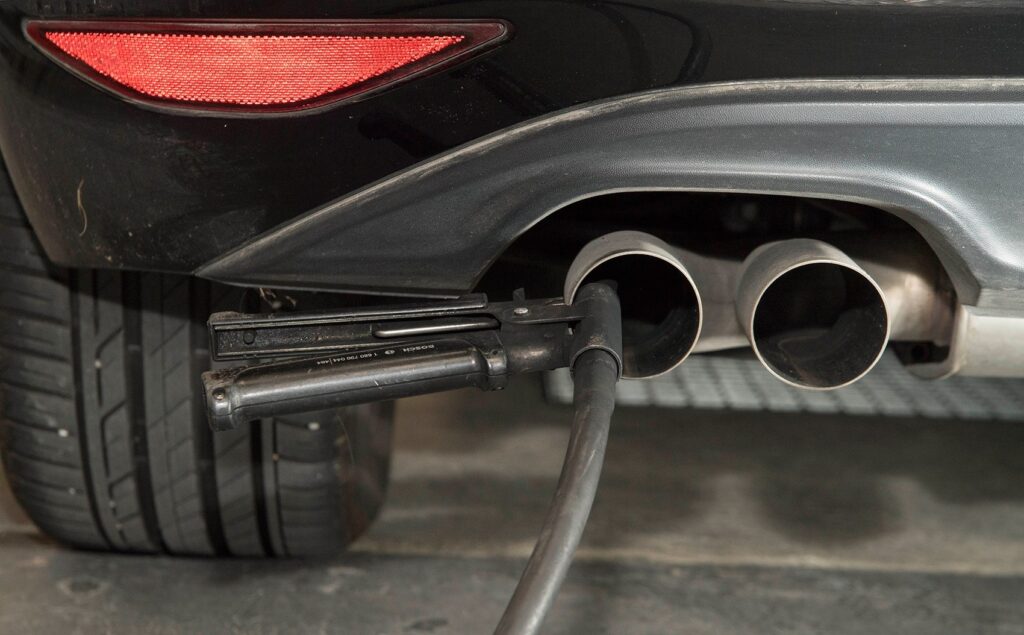Over the past few years, we’ve seen numerous stories emerge about car manufacturers falsely reporting the emissions from their diesel vehicles. One of the culprits that have been accused by authorities of doing this is Vauxhall. A company that has long been associated with producing reliable, high-quality cars has been shocking to many to discover that they may have been dishonest about their diesel emissions.
As experts have started to investigate the situation more deeply, it’s become clear that Vauxhall could have misled both regulators and customers about the emissions of their cars. There are a few factors that suggest this is the case. Firstly, it’s been revealed that Vauxhall may have used software that modified the emissions readings of their vehicles during testing. This is the same software that led to the Volkswagen emissions scandal, which shows that Vauxhall may have adopted similar tactics.
A study by BBC Panorama found that the Vauxhall Zafira model emitted up to nearly three times the legal limit of nitrogen oxide during real-world tests. Additionally, Vauxhall emission claims purported that the vehicles emit significantly higher levels of nitrogen oxides (NOx) on the road than they did during lab tests. This is a telltale sign that the company may have manipulated its emissions readings. It’s worth noting that NOx is one of the most harmful pollutants and can cause respiratory issues, particularly for those with underlying conditions.
Vauxhall has received significant criticism from authorities and the public for this issue, which is currently under investigation. The company has tried to reassure its customers that it’s taking the matter seriously, but many people remain unconvinced. Ultimately, it’s going to take a lot of work for Vauxhall to regain the trust of its customers and the wider public.
Environmental impact of Vauxhaull’s alleged wrongdoing
The automotive industry is responsible for a significant portion of global greenhouse gas emissions, and efforts to reduce these emissions have been at the forefront of environmental measures for years. One of the major ways in which car manufacturers have sought to limit their carbon footprint is by developing increasingly cleaner diesel engine technology.
In 2015, the Volkswagen emissions scandal shocked the world, revealing that the automaker had installed software on its diesel engines to cheat on emissions tests. The scandal not only hit the company financially but also caused a major blow to the entire industry’s reputation. After the scandal, the UK Government established a testing program for all new diesel cars to ensure that emissions were accurately reported.
The scandal has had far-reaching implications, particularly for the environment. Diesel engines, by design, tend to emit more NOx than petrol engines. When inhaled, NOx can cause respiratory problems, such as asthma. Additionally, NOx contributes significantly to air pollution, linked to numerous health problems, including heart and lung disease. The impact of emissions from diesel engines has become a huge concern for the World Health Organization (WHO) and other organizations, prompting several governments to consider phasing out diesel engines altogether.
Considering Vauxhall’s alleged wrongdoing, the question arises: what are the potential long-term environmental impacts of cheating emissions tests? One of the most pressing concerns is the damage done to air quality, particularly in urban areas. NOx and other pollutants diesel engines release can linger in the atmosphere for extended periods. These emissions can contribute to smog, exacerbate respiratory problems, and cause eye irritation and itchy throats.
Technology to combat vehicle emission issues
Fortunately, recent technological advancements have provided innovative solutions for curbing diesel emissions. Here are some of the most promising technologies that are currently being employed to combat the problem of diesel vehicle emissions:
Exhaust gas recirculation (EGR) simply recirculates some of the exhaust gases back into the engine cylinders, thereby reducing the amount of oxygen in the combustion process.
Diesel particulate filters (DPF) are specifically designed for capturing soot particles released during combustion. These filters trap the particulate matter before it enters the atmosphere, effectively reducing diesel particulate emissions. Experts recommend that the DPF be replaced periodically to maintain optimal efficiency levels.
Selective catalytic reduction (SCR) systems are another effective technology for reducing nitrogen oxide emissions. These systems use chemical reactions to convert nitrogen oxides into gas and water vapour. This process involves injecting a diesel exhaust fluid into the exhaust stream, reacting with the nitrogen oxides in the catalytic converter.
Hybrid electric engines are another important technology that can significantly reduce diesel emissions. These engines combine a diesel engine with an electric motor, which allows the vehicle to use less fuel and emit fewer pollutants. Using regenerative braking, these engines can generate electricity, powering other vehicle systems.
How do I start my diesel claim?
If you believe you have been affected by diesel emissions, you may wonder what steps you need to take to start a diesel emissions claim against the responsible parties. You can head to Emissions.co.uk for a comprehensive overview of the process.
Consider engaging an emissions expert that is experienced in these types of claims. You are entitled to receive proper emission compensation.


